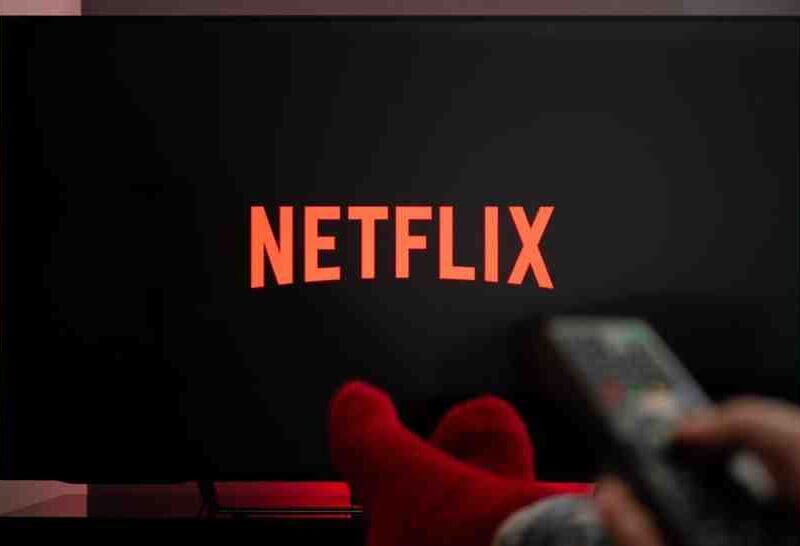
‘Sorry to Bother You’ is 2018’s best film: Here’s why it needs international distro, stat
Musician-turned-filmmaker Boots Riley is not sorry when it comes to stirring his audience. Having disrupted the music industry as the leader of the leftist Oakland hip-hop group The Coup, he’s now set his sights on the film industry with the release of Sorry to Bother You – a surreal satirical take on capitalism and arguably the most innovative film to have hit the scene in recent years.
With a narrative that’s as fun as it is ultra-progressive, Lakeith Stanfield plays Cassius “Cash” Green, a flailing millennial living in his uncle’s garage with his artist-activist girlfriend Detroit, played by the glorious Terry Crews and Tessa Thompson, respectively. Taking up a job as a bottom-level telemarketer, he learns how to swiftly climb the ladder by adopting a nerdy, nasal white dude vernacular (voiced, of course, by David Cross).
What unfolds is a vigorous critique of global capitalism and systemic racism that is comical yet also not completely removed from reality, offering a parody on the corporate shared workspace company WeWork via an organization staffed by Americans who have been tricked into collective slavery that’s promoted in the film as “Worry-Free”. With his newly adopted “White Voice”, Cassius finds success in this modern-day dystopia and is soon in the firing line of Worry-Free’s sociopathic, cocaine-huffing CEO Steve Lift (Armie Hammer), who represents everything Cassius’s co-workers despise.
The film strikes a fine balance of conveying its sociopolitical commentary without hurling such statements at the heads of its audience members like a coke can. “Riley manages to both never come off as taking the thing too seriously, but he also verbalizes his intersectional, anti-capitalist ideals in visually unforgettable fashion,” mused Vulture writer Emily Yoshida.
As a result, the film was a resounding success upon its premiere at this year’s Sundance Film Festival, wowing critics and opening up discussions about the new-age of indie cinema that saw Riley at the head of the pack.
“Riley has clearly held nothing back and after 25+ years of using his voice and unique point of view in the world of hip-hop, this is as audacious an entry into the world of feature filmmaking as one could possibly make,” wrote Lindsay Bahr at the Associated Press. “This is the fearless satire that America desperately needs right now,” declared Seattle Times’s J.R. Kinnard. “Both Riley and Get Out’s Jordan Peele have recreated our world but cracked through with a surreal seam that makes its hidden evils unmissable,” shouted The New Republic’s Josephine Livingstone.
The reviews speak for themselves – Sorry to Bother You is the 1984 of 2018 and it contains an important message we should all be listening too. Which raises the question: Just why the hell hasn’t the film found an international distributor yet? Since July 27, Sorry To Bother You has been available to watch in every damn city of the United States. But if you don’t reside in the so-called land of the free, Riley’s joyous vision of resistance is out of reach.
One Reddit user speculated the reason to be because “it costs money to release world wide and distribute the film.” No shit! But if this is the reason distributors are holding back, it would be particularly perplexing given the topical relevance of the film and its message. There’s something of a cruel irony that a film whose narrative so heavily lambasts the reckless nature of capitalism would not be made available to audiences outside of the country it critiques because of economical factors.
that look you give someone when they haven’t seen #SorryToBotherYou yet ?tag the homies below who need to see it >>> https://t.co/E6TzDY4sN2 pic.twitter.com/wZMRsthmO5
— Sorry To Bother You (@Sorry2BotherYou) July 26, 2018
The reaction to the film has been unanimous not only with the critics, but with cinema-goers since its nationwide release. “It was absolutely incredible,” wrote Jason Ritter on Twitter. Another wrote, “it’s so refreshing to see a director’s raw, honest, unmediated vision,” while dozens of Tweeters urged people to “go see Sorry to Bother You” right now. If only the rest of the world could have the pleasure.
A similar picture unfolded for David Robert Mitchell’s debut horror feature It Follows, which premiered to critical acclaim at Cannes 2014. Eulogized as a canny allegory on STDs and social anxieties on sex, It Follows was a critics’ darling and just like Sorry to Bother You, it was considered a cult classic in the making. Which is what made its delayed distribution all the more frustrating. It was an entire year before the film enjoyed a theatrical release in countries across the pond, despite proving such a resounding success with audiences and critics alike.
When it was finally released to theaters in 2015, it proved what many had predicted – after a surprising opening weekend in four theaters, Radius expanded its US theatrical release, leading to a gross of $14 million in North America, ranking #5 in the US during its wide release opening weekend. As Drafthouse Films’s Tim League told IndieWire, this is a phenomenal achievement for a low budget, indie, horror movie with a first-time director, no-name actors, and an extremely modest marketing budget. It was a resounding success, so why the delay?
Likewise, Sean Baker’s experimental LGBTQI feat Tangerine was hailed the best film at the 2015 Sundance Film Festival and enjoyed a limited release in the US on July 10 of the same year through Magnolia Pictures. For audiences outside of the country, it was a long old wait before they were able to enjoy the stunningly crafted dramedy. For those across the pond, it wasn’t until November that the film was released by Metrodome Group. For Brazil, the film hit theaters in January of the following year, while countries in Southeast Asia including Japan were made to hold tight until 2017.
Are those hoping to catch a glimpse of Riley’s chaotic yarn going to have to wait as long? We have no doubt Sorry to Bother You is a film that would be well-received by international audiences and in the digital age we live in, it seems absurd for a film with such an important message to tell would not be given the opportunity to find viewers outside of the country it is set. As one Redditor expressed in a recent post, hopefully it’s “at least picked up by Netflix as this seems up their alley.”
The bottom line is that Sorry to Bother You is the best movie to have emerged from the film festival circuit this year. It serves a poignant message that is relevant to the political climate of the world we live in, but it’s also a masterclass in how to handle such topics with satire and humor. It’s entertaining, insightful, and an essential film, one that deserves to be seen by audiences across the globe. So let’s hope we see it picked up by international distributors sooner rather than later, because Sorry to Bother You is a fearlessly ambitious dystopian satire that everyone needs to see.







